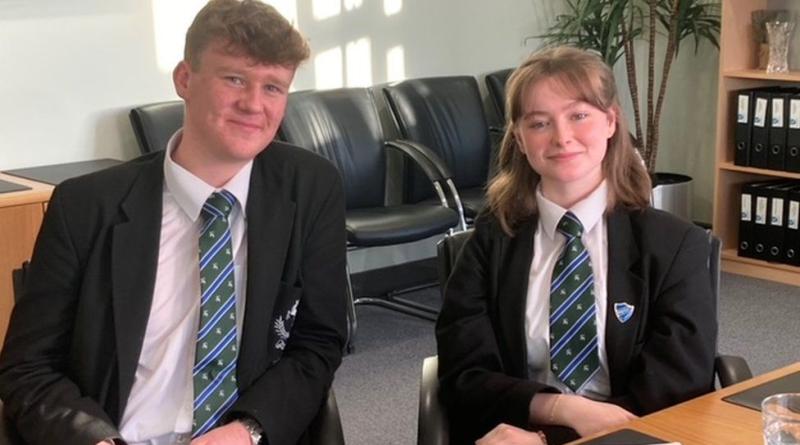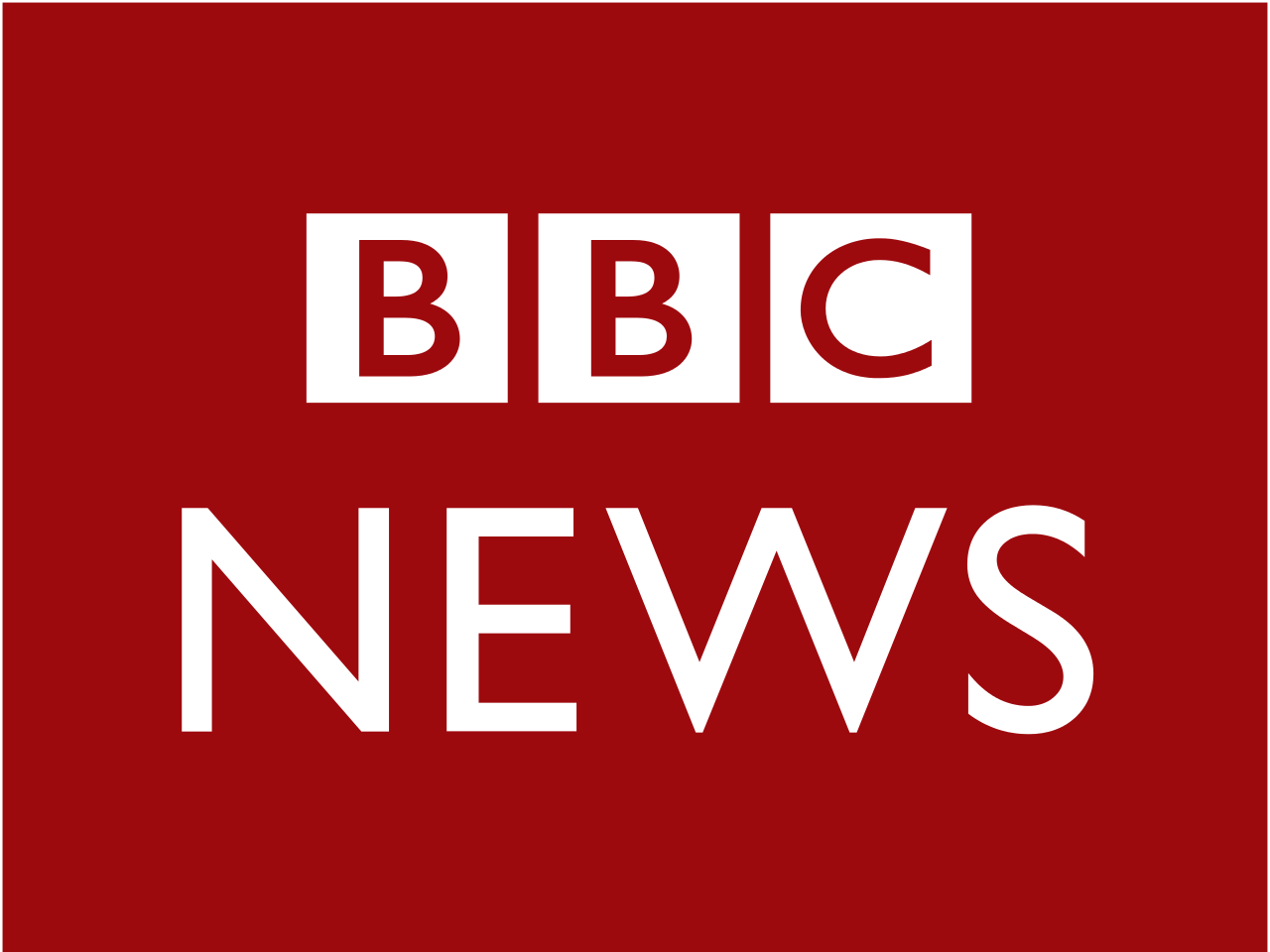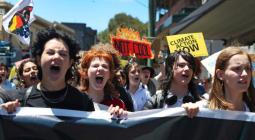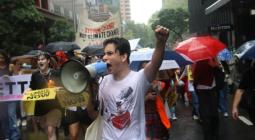COP28: Students at mock event 'want action on empty promises'

The dust is settling on the COP28 climate change conference and the agreement reached on transitioning away from fossil fuels.
School pupils in Northern Ireland who took part in a mock COP28 event organised by the British Council have been watching developments keenly.
As young people, they are likely to feel the impact of our changing climate the most.
Two students from Grosvenor Grammar School in Belfast who took part in a conference at Belfast City Hall gave their verdict on the agreement reached by almost 200 countries in Dubai.
"It's a good first step forward," said year 14 student, Rebecca Lennox.
"But it can't be the only step. I want to see action over empty promises."
For the first time, countries agreed on the need to "transition away from fossil fuels in energy systems".
The text calls for this to be done "in a just, orderly and equitable manner". This is seen as an important recognition that richer countries are expected to move away from coal, oil and gas more quickly.
The president of the event, Sultan Al-Jaber, described it as "a historic, landmark, game-changing agreement".
'I hope it's true'
Year 14 pupil at Grosvenor, Joel McKittrick, agreed but with a cautionary note.
"It has been dubbed 'the beginning of the end of fossil fuels' and I really hope that is true," he said.
"But it's no good saying all this stuff without it actually happening.
"I really hope to see some serious action taken against fossil fuels and I really do hope we shift away from the use and consumption of fossil fuels."
Rebecca had her own reservations.
"Methane isn't mentioned at all in the text, which is obviously one of the most potent greenhouse gases.
"I definitely think that's a weakness in it that needs to be addressed."
Both pupils felt world leaders had now grasped the importance of tackling climate change.
But they felt some of what had happened at COP28 could have been done differently.
Many groups - including the US, UK, EU and some of the nations which are most vulnerable to climate change - had wanted a more ambitious commitment to "phase out" fossil fuels.
"I would have included people of small island nations, because they're going to be most affected by climate change and the deal doesn't do enough to protect them," said Rebecca.
"I've heard that they weren't in the room while it was being approved.
"I feel like they could have been involved more."
Rising seas
Joel felt that the concerns of those nations had not been taken seriously.
"With the rising sea levels, these smaller islands are in serious danger.
"There were spokespeople from Samoa who were especially outraged, and I think smaller islands like that, they do need to be taken into consideration as there could be a serious loss of habitat there."
With analysis of the agreement continuing, both students were pleased that it in part mirrored the accord they and almost one hundred other pupils had come to at the mock event.
"As students, we all acknowledged that we definitely want to move away from fossil fuels, but currently the infrastructure's quite limited to accommodate for green energy," said Rebecca.
Joel agreed, saying: "We were able to reach a definite agreement at the end of the conference and we were able to recognise that we had to move away from fossil fuels, but we all agreed that it was going to be very hard to do.
"But I definitely think it's achievable with the right resources."
Getting those resources in place will be the focus of COP29 in Azerbaijan next year.






